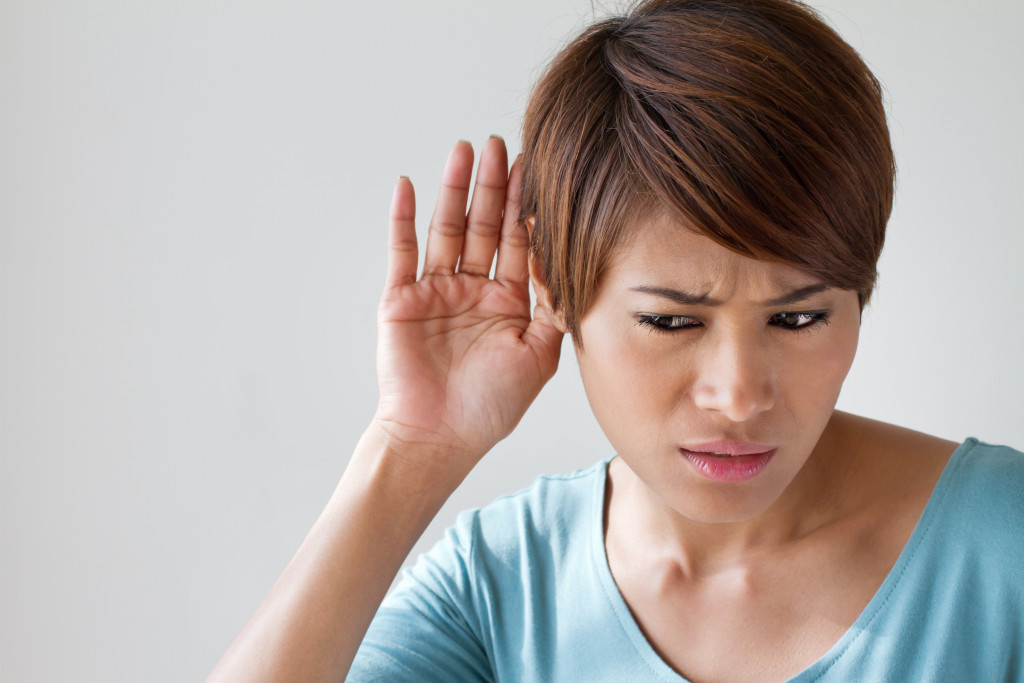Your five basic senses are at the top of the list of the most taken-for-granted functions that your body has. Your ears, eyes, skin, nose, and tongue work nonstop every second of every day. You hear your alarm clock buzzing, so you search for it and touch the snooze button so that you can have five more minutes. And then you fully gain consciousness because of the smell of fried bacon and the taste of your freshly brewed coffee.
Living your daily life can be very challenging without the help of these senses. And learning how to live if they’re taken all at once might prove to be impossible. That is where this list comes in. With the list of the common sickness that endangers your three most important senses and tips on how you can avoid and cure them, your chances of continuously experiencing their glorious benefits grow.
Sense of Touch: Peripheral Neuropathy
The skin is the largest organ in your body. It’s also the primary sensory organ responsible for your sense of touch. This includes feeling temperature and pressure that leads to feeling and knowing pain and pleasure.
Imagine if your mind can’t distinguish pain. That would result in unchecked internal and external injuries that might lead to your demise if not taken care of immediately. Without a properly functional sense of touch, your mind’s ability to determine danger would be weakened. This is what happens when you get peripheral neuropathy. Since every nerve in your body has specified functions, the effect of this condition varies. Some symptoms are as follows:
- Skin numbness
- Extremely painful prickling in your limbs
- Jabbing, throbbing, and burning pain across your body
- Extreme sensitivity to touch
- Paralysis once your motor nerves get affected
Since this condition can be caused by alcoholism, vitamin deficiencies (B Vitamins), and physical injuries most commonly received from motor vehicle accidents and falls on contact sports, simply making healthier lifestyle choices can help prevent this. By exercising regularly and eating healthy, the risk of getting peripheral neuropathy is minimized.
Sense of Sight: Keratoconus

Vision is one of the most important senses. Your eyes are one of the most strained organs in your body since humans are known to rely mostly on their sight to get the information their brains need to make decisions.
Having visual impairment can drastically and directly affect your life, from something relatively trivial like entertainment to something more detrimental to your survival like security. Keratoconus is a disease that causes the cornea to become thinner and bulge outwards. Contrary to popular belief, keratoconus is a common condition that occurs in children and young adults. But since it usually starts as nearsightedness and slowly but continuously progresses for longer than ten years, people fail to notice how dangerous it is. The symptoms are as follows:
- Nearsightedness
- Blurred and distorted vision
- Extreme sensitivity to light
- Sudden clouding of vision
- Significant vision impairment
Keratoconus is susceptible to genetic predisposition, eye rubbing, chronic eye irritation, overexposure to UV rays, and poorly fitted contact lenses.
There are many ways to treat progressed keratoconus such as corneal cross-linking surgery, conductive keratoplasty, and corneal transplant. But if you can use contact lenses that are either gas permeable, or scleral as early as possible, then its progression may be avoided.
Sense of Hearing: Mumps
Much like your senses of vision and touch, hearing can also bring pleasure and keep you out of harm’s way. Sounds amplified by your ears are sent as sound waves to your brain. The sensory information picked up can alert you to potential hazards that your brain has stored such as a smoke alarm, a dog’s bark, or a car horn.
Without this sense, you may lose a big part of your brain’s ability to distinguish danger from the environment. And mumps can be the cause of you losing your hearing. Mumps is commonly known to cause puffy cheeks and swollen jaws. But no matter how cute and harmless it may sound, it is a dangerous disease caused by a viral infection that affects your salivary glands, which are located near your ears. The disease is highly contagious. Close-contact activities, sharing items that may have saliva on them, coughing, sneezing, or even simply talking closely to a person with the disease can lead to the virus spreading. The symptoms of mumps vary depending on the age of the patient.
- Fever
- Headache and muscle aches
- Extreme pain in the swollen salivary glands
The most frightening aspect of the disease is that it can lead to multiple complications, especially for adults.
- Inflammation of testicles (orchitis)
- Inflammation of the ovaries (oophoritis)
- Inflammation of the tissue covering the brain and spinal cord (meningitis)
- Deafness
Since there is currently no known treatment for this disease other than resting and easing the symptoms, vaccination against it is vital to your and your family’s health. Mumps vaccine is usually combined with the vaccine for measles and rubella. Remember that in medicine, prevention will always be better than cure.
Your senses, especially the three included here, are crucial parts of your daily life. Whether it’s for convenience, entertainment, or survival, your senses of vision, touch, and hearing should not be taken for granted. AS stated above, remember that prevention will always be better than cure. Take care of your body, live healthily, and get yourself checked regularly to ensure your safety.
